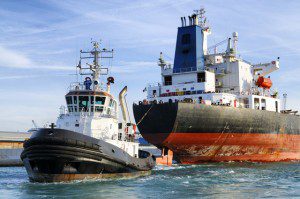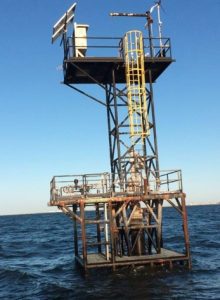Overview of Jones Act Safety Rules for Maritime Workers
The Jones Act provides safety rules in favor of maritime industry workers. Most individuals working offshore have no idea of the significant rights and safety rules that apply to their day-to-day activities. Unfortunately, many companies routinely violate these rules. Very often, when we speak to potential clients, we are told that “we always did the job that way” even though doing so violated specific Jones Act requirements and regulations.
Many maritime workers aren’t aware of the rules in place that protect those who work in the maritime industry. People may assume that just because an employer does something, it is the right thing. In fact, they could actually be violating the rules that are designed to protect you.
If you sustained an injury or lost a close family member due to violations of federal law and Jones Act requirements, you should speak with an experienced Jones Act lawyer near you for a free case evaluation.
The Safety Rules Under the Jones Act (Merchant Marine Act)

The Jones Act, also known as the Merchant Marine Act of 1920, is a federal law that regulates maritime commerce in the United States. It includes provisions to protect the rights of seamen who work on vessels operating in navigable waters. The Jones Act establishes several safety rules and requirements for the maritime industry:
- Provide a safe working environment, including safe equipment, tools, and safety devices
- Conduct regular safety inspections to ensure that the work environment is safe and free from hazards
- Provide adequate training, supervision, and assistance to all employees
- Take adequate measures, such as required background checks and drug testing, to ensure that workers are safe from the harmful acts of other crew members
- Adopt and enforce safety rules and regulations
- Provide adequate and working emergency safety equipment for all employees
- Ensure the vessel is properly manned
- The vessel owner must ensure that the ship is seaworthy, properly equipped, and reasonably safe for its intended purpose.
- Not require the crew to work in inclement weather or dangerous conditions
If a seaman becomes ill or injured while in service of the vessel, the employer must provide medical care, treatment, and wages until the seaman has reached maximum medical improvement. An injured seaman can bring a negligence claim against their employer if their negligence or the vessel’s unseaworthiness caused the injury.
Safe Place to Work
Under the Jones Act, an employee has a right to a “safe place to work.” This is one of the broadest rules of the Jones Act, and it applies to many situations that can cause injuries. If your case is decided by a judge or jury, that judge or jury will specifically determine if you were given a “safe place to work.” If you have suffered an injury and you think that unsafe work conditions caused the injury, this could be a violation of the Jones Act.
Proper Training
Under the Jones Act, your employer also has duties to properly train you, properly supervise your work activities, and provide enough employees to do the jobs to which you are assigned. Very often, newly hired employees will not be properly trained on how to do a job.
Employers routinely refer to “on-the-job training” or OJT. We have found that this type of training can be insufficient for many of the detailed, complicated jobs that require experienced workers. Unfortunately, the more dangerous procedures of certain jobs are the harder to perform. Sometimes, the newest employee will be given the hardest job because the more experienced, more senior employees do not want to perform the harder job.
Proper Manpower
Employers must also provide enough workers to perform the job safely under the Jones Act. This is typically one area where many employers will continually perform a job without sufficient employees simply because it has always been done that way.
The Jones Act addresses this exact situation, and your lawyer can inform the judge or jury in your case that simply performing a job repeatedly the same way does not necessarily make the procedure safe. This is particularly true concerning procedures that workers perform infrequently.
In these situations, many employers will not have sufficient manpower to perform the job because it is not a routine procedure. Nonetheless, these employers very often simply perform the job with the crew members that are available at that time.
Compliance with Industry Standards

Finally, there are many industry-specific rules and regulations which also apply under the Jones Act. These industry standards include the American Petroleum Institute (API) standards which apply to the operation of cranes offshore as well as rigging of cranes and slings. Under the API rules, the crane operator is always “in charge” of any procedure being performed by the crane. The crane operator is also required to have a flag man present on all lifts and the crane operator is ultimately responsible for the rigging of all loads.
Coast Guard rules also apply under the Jones Act since the employee is assigned to a Coast Guard “vessel.” This is the reason that the Coast Guard will typically investigate serious injuries that occur under the Jones Act. Coast Guard regulations include keeping the vessel safe and making sure that there are no dangerous trip or slip hazards aboard the vessel. All walkways also must be properly marked under Coast Guard regulations.
Finally, OSHA regulations also provide guidance under the Jones Act. OSHA has detailed requirements that inspections be performed in workplaces. OSHA also requires that employees be given “safe” workplaces and that all equipment and machinery be working properly. Typically, OSHA will have detailed specific rules such as requiring that the front of steps be marked with some type of visible marker including yellow paint.
OSHA Rules
OSHA creates and oversees the safety rules for barges and has many recommendations for ship workers to avoid accidents and injuries:
- Removing debris from floors and walkways
- Appropriately stacking items
- Cleaning up spills immediately
- Quickly repairing leaky hoses and pipelines
- Using sufficient lighting when working at night
- Walking, not running on the barge
- Using a ladder instead of climbing on cargo
Falls from ladders are the leading cause of workplace injuries and deaths. The Jones Act requires barges and other vessels to practice appropriate safety measures regarding ladder use.
Ensuring Safety Offshore
One of the reasons that working offshore comes with such a competitive paycheck is that there are significant risks to working in this field. There are, however, ways to protect yourself and mitigate the risks. In addition to receiving the proper safety instructions and certifications, below are some more ways to ensure you are as safe as you can be in this working environment.
General tips for staying safe:
- Keep workplaces, common areas, sanitary facilities and operating sites clean.
- Keep areas of high traffic – including escape routes, rescue paths, and pathways to fire extinguishers and emergency aid equipment – free of all obstructions.
- Report any hazard you observe immediately to someone in charge.
- Always use the proper personal protective equipment for any job, including:
- Hard hat
- Protective gloves
- Safety shoes
- Protective suit
- Eye protection
- Always know who the supervisor in charge for your area is, as well as all reporting and information channels.
- Always know where the emergency on/off switches and call facilities are.
- Always know where the nearest first aid kit is, and where the fire alarms are located.
- Know where life jackets and lifeboats are located.
More dangerous situations
Operate with an extra level of caution when:
- Dismantling or setting up equipment
- Working at heights
- Handling pipes, drilling strings, and casings
- Working in borehole basement
- Working in enclosed spaces (check out SOLAS’ regulation)
- Moving heavy loads
- Carrying out pressure tests or handling explosives
- Handling devices with radioactive sources
- Reaching strata that may contain gases with hydrogen sulfide
- In flush production of wells or when using an oil flush
- In heavy winds
What Are Common Causes of Maritime Injuries?
Maritime workers face various hazards that can lead to injuries. Whether in ship construction, military operations, passenger vessel services, or foreign or domestic shipping, the risk of maritime workers sustaining a serious injury is always present. Some common causes of maritime injuries include:
- Slip, trip, and fall accidents: Wet or slippery decks, uneven surfaces, and cluttered work areas can cause workers to lose their footing and suffer injuries.
- Equipment failures: Malfunctioning or poorly maintained equipment, such as cranes, winches, and ladders, can cause accidents and injuries.
- Falling objects: Unsecured cargo, tools, or equipment can fall and strike workers, causing head injuries and other trauma.
- Exposure to hazardous materials: Workers may be exposed to dangerous chemicals, fumes, or other substances that can cause respiratory issues, skin irritation, or other health problems.
- Fires and explosions: Flammable materials, faulty electrical systems, and other hazards can lead to fires or explosions on vessels.
- Overexertion and repetitive motion injuries: Heavy lifting, awkward postures, and repetitive tasks can cause strains, sprains, and other musculoskeletal disorders.
- Confined space accidents: Working in confined spaces with limited ventilation or hazardous atmospheres can lead to asphyxiation, poisoning, or other injuries.
- Collisions and allisions: Accidents involving vessels colliding with each other or stationary objects can cause injuries to crew members.
- Inadequate training or safety equipment: Insufficient training or lack of proper safety gear can increase the risk of accidents and injuries.
- Adverse weather conditions: Rough seas, high winds, and other weather-related factors can create hazardous working conditions and contribute to accidents.
To minimize the risk of maritime injuries, employers must provide proper training, maintain a safe work environment, and ensure that workers have access to appropriate safety equipment and protective gear.
Losses and Damages Stemming from a Jones Act Claim
If a seaman is injured due to the negligence of their employer or the unseaworthiness of the vessel they are working on, the Jones Act allows them to bring a claim to recover compensation for the losses and damages they have suffered as a result of the injury. Some of the key types of recoverable losses and damages in a Jones Act claim include:
- Medical Expenses: A seaman can recover the costs of all reasonable and necessary medical treatment related to the injury, including hospital bills, doctor visits, surgical costs, medications, medical devices, and ongoing care or therapy. This includes both past medical expenses already incurred as well as anticipated future medical expenses.
- Lost Wages: If the injury prevents the seaman from working, either temporarily or permanently, they can claim the wages they have lost and will lose in the future due to the inability to work. This includes regular wages, overtime, and benefits. If the injury results in a diminished future earning capacity, this projected loss can also be claimed.
- Pain and Suffering: A seaman can seek compensation for the physical pain and discomfort as well as the psychological suffering and emotional anguish the injury has caused. This includes things like physical pain, depression, anxiety, loss of enjoyment of life, and loss of companionship.
- Disability: If the injury leaves the seaman with a temporary or permanent disability or physical impairment, they can claim additional damages for the impact the disability has on their life and ability to work.
- Disfigurement: If the injury causes scarring or other disfigurement, the seaman can seek damages for the emotional distress and embarrassment this causes.
- Loss of Fringe Benefits: In addition to lost wages, a seaman can claim the value of lost fringe benefits like retirement contributions, bonuses, vacation pay, etc.
- Punitive Damages: In some cases involving especially egregious negligence, intentional wrongdoing, or reckless disregard of safety by the employer, the court may award punitive damages to punish the defendant’s misconduct and deter similar actions in the future.
An experienced maritime injury lawyer can help you evaluate the full extent of their losses and build a strong case to maximize your recovery under the Jones Act. Each claim needs to be evaluated on a case-by-case basis, and the specific damages you can receive will depend on factors like the severity of the injury, your occupation, your age and earning potential, the employer’s degree of fault, and the impact the injury has on the your life overall.
Retaining skilled legal counsel is crucial for protecting your rights after an offshore injury.
What to Do When Something Goes Wrong
Sometimes, even when you take every possible precaution, things still go wrong. In the case of an accident or disaster, here are a few ways to protect yourself and limit your potential for injury or worse.
Time, distance, and shielding – Three critical factors of survival
- Time – Your risk for fatal expose increases the longer you remain in the area.
- Distance – Your rate of survival is higher the farther away from the incident you are.
- Shielding – The more physical barriers between you and the incident, the better your chances of survival (protective suits, standing behind a steel bulkhead, etc.)
Personal Protective Equipment (PPE) – Availability and access
- Have a spare set of protective gear immediately available to you at all times. Know where protective gear is located, and how to get to it quickly in case of emergency.
- Never assume any area is safe, and develop plans to mitigate your risk.
- Keep a flashlight next to your bed – if there is a loss of power, you do not want to waste time digging through drawers in the dark.
- Keep a set of protective gear hanging on your door in case of emergency egress. This should include a set of fire-resistant coveralls with gloves, a flashlight and knife in the pockets; a pair of eye protection; a hardhat; and a pair of steel-toed boots with socks inside. This spare pair of gear should be in addition to your work clothes, and should remain in “like-new” condition, as the protective gear loses effectiveness each time it is washed.
- Maintain an “abandon ship” bag. This bag should contain an EPIRB, a handheld VHF, a flashlight and any other supplies you may require in an emergency.
Communicate
- Keep your radio near you at all times – particularly at night when you’re in bed. This will enable you to quickly learn details of an emergency from the moment you wake up if an alarm rings.
If You Get Injured in a Maritime Industry Accident
If you have been injured in a maritime industry accident, there are several important steps you should take:
- Seek medical attention: Your health and well-being should be your top priority. Seek medical treatment as soon as possible and follow your doctor’s instructions for recovery.
- Report the incident: Notify your supervisor or employer about the accident and your injuries. Make sure the incident is documented in writing. Your company should also be filing an accident report with the Coast Guard.
- Gather evidence: If possible, collect evidence related to the accident, such as photos of the scene, witness statements, and any equipment or machinery involved.
- Know your rights: Maritime workers are protected by specific laws, such as the Jones Act and the Longshore and Harbor Workers’ Compensation Act (LHWCA). These laws entitle you to certain benefits and compensation if you are injured on the job.
- Consult an experienced maritime lawyer: Maritime law is complex, and it’s essential to work with an attorney who handles this area. They can help you understand your rights, navigate the legal process, and fight for the compensation you deserve.
- File a claim: Your attorney can assist you in filing a claim under the appropriate maritime law. This may include a claim for maintenance and cure, which covers your medical expenses and living costs while you recover.
- Be cautious when dealing with insurance companies: Insurance adjusters may try to minimize your claim or get you to settle quickly. It’s best to consult with your attorney before signing any documents or agreeing to a settlement.
Remember, if you’ve been injured in a maritime accident, you have rights and may be entitled to significant compensation. Working with an experienced maritime lawyer can help ensure that you receive the benefits and support you need during your recovery.
Request our free resources. There’s no need to go through an injury alone. Our firm provides many resources that help injured maritime workers get back on their feet.
Contact an Experienced Jones Act Attorney Today
Ship owners and builders, merchant mariners, and maritime administration of U.S. defense vessels have a duty to provide a safe and effective working environment for all employees. If you or a loved one sustained an injury due to another party’s negligence or wrongdoing, contact the experienced maritime accident injury lawyers at The Young Firm today.
During our free consultation, we will inform you of your rights and the best course of action to recover the compensation you need. We also work on a contingency fee basis, so you won’t pay anything upfront and no attorney fees unless we recover compensation for you.


